Specific conditions for admission:
Candidates for admission to this cycle of studies must fulfill the following conditions:
a) Hold a master's degree or legal equivalent;
b) Hold a bachelor's degree and have a particularly relevant academic or scientific curriculum that is recognized as attesting the capacity to carry out this cycle of studies by the Scientific Committee of DCV.
c) Hold an academic, scientific or professional curriculum vitae that is recognized as attesting the capacity to carry out this cycle of studies by the Scientific Committee of the DCV.
Specialities:
Clinical / Animal Health / Animal Production / Food Safety / Biological and Biomedical Sciences
The coordination of the course guarantees the permanent monitoring and evaluation of the functioning of the DCV, assessing the fulfilment of its objectives and promoting the timely introduction of the necessary changes for its constant updating and improvement.
The work leading to the preparation of the thesis and its writing must be carried out under the supervision of a doctor, professor or researcher of the FMV. The PhD candidate may freely choose his/her supervisor and co-supervisors, according to the rules in force, being able to request the support of the Scientific Council. It is the duties of the supervisor to ensure that adequate working and bibliographic research conditions exist for the completion of the activities outlined in the supervisor's Work Plan and to guide the research work in terms of its scientific, technical and ethical components, advising the candidate on the best way to achieve the objectives of his research project.
The cycle of studies, namely the doctoral course, is taught at the Faculty of Veterinary Medicine of the University of Lisbon, located at the University of Lisbon's Pólo da Ajuda. The research work leading to the doctoral thesis may be carried out outside the FMV, according to the approved work plan, in national or foreign university or research institutions, under the supervision of the supervisor(s) appointed by the Scientific Council.
This cycle of studies includes a curricular component, with compulsory subjects of Introduction to Scientific Research, which include curricular units of a philosophical and mathematical nature, animal experimentation, experimental design and participation in seminars. In addition to these curricular units, there are others of an optional nature
These optional course units are considered appropriate by the Scientific Committee and provide the doctoral students with a certain flexibility and a greater conformity to their training, according to the speciality of their research work and their personal preferences. Students may enrol in optional course units from among those offered for Masters courses at the FMV, in the corresponding scientific areas, and in accordance with the rules established for this purpose in the Doctoral Regulations. According to the previous education of the PhD candidates, the Scientific Council may credit specific previous education, waiving the approval in the compulsory or optional course units foreseen.
Finally, the granting of this degree presupposes the preparation, discussion and approval of a thesis especially written for that purpose that reports the execution of original research work.
General objectives defined for the study cycle:
The objectives of the DCV are to guarantee high-level training, grounded in research activities, at the end of which, students demonstrate that they meet the following requirements:
a) Capacity for systematic understanding in the scientific area;
b) Competences, aptitudes and research methods associated with the scientific area;
c) Capacity to conceive, design, adapt and carry out significant research;
d) To have carried out original research work that has contributed to expanding the frontiers of knowledge, part of which has been published or accepted for publication as scientific article(s) in international specialist journal(s);
e) To be capable of critically analysing, evaluating and synthesising new and complex ideas
f) Be able to communicate with their peers, the rest of the academic community and society in general about the area of specialisation;
g) Being capable of promoting technological, social or cultural progress.
Access and admission to the cycle of studies that leads to the doctoral degree
a) Holder of a master's degree or legal equivalent;
b) Holders of the degree with a minimum final classification of fourteen (14) on a scale of zero to twenty, or equivalent, having a particularly relevant academic or scientific curriculum vitae that is recognized as attesting the capacity to carry out this cycle of studies by the DCV's Scientific Committee;
c) Exceptionally, the holders of an academic, scientific or professional curriculum vitae that is recognized as attesting the capacity to carry out this cycle of studies by the Scientific Commission of the DCV.
